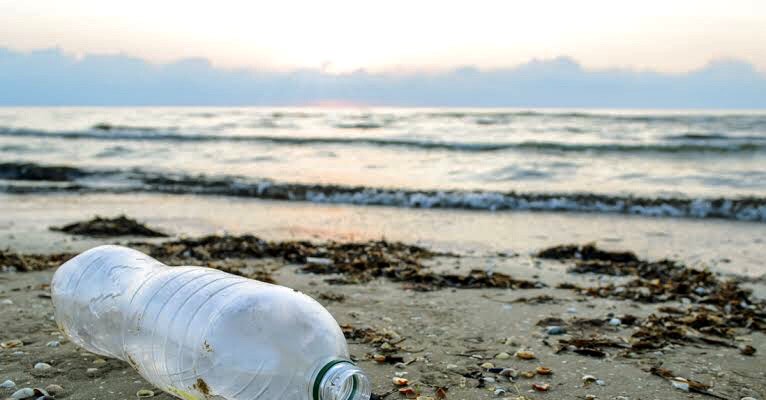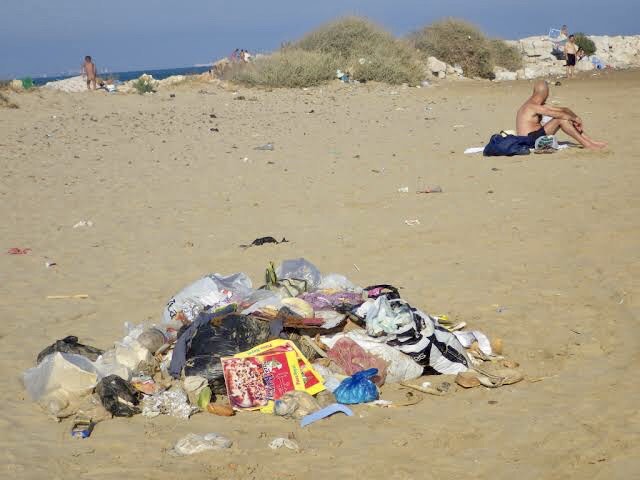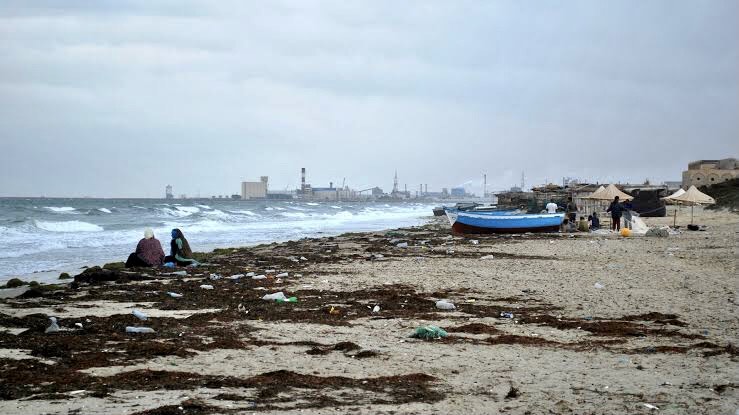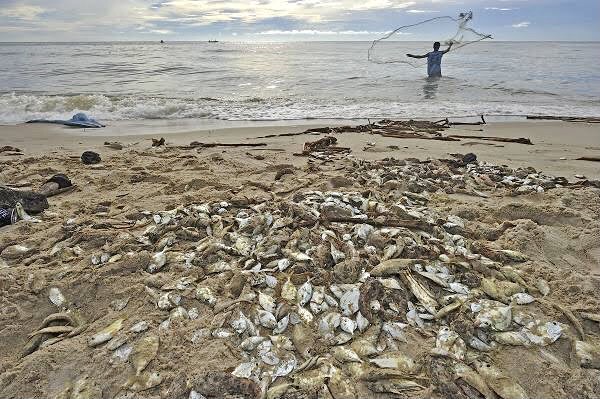
By Faith Nyasuguta
In the 1990s, water in the beaches of Tunisia was clean enough to bathe in, but not anymore as pollution continues to plague the beaches.
“Now I can’t swim anymore, and neither can my son,” one Tahar Jaouebi says. Jaouebi, 47, is among hundreds of protesters who set up a human chain during the weekend to accentuate the pollution choking the coast south of the Tunisian capital.
Over the years, the list of Tunisian beaches banned from the public has continued to increase. From 18 in 2018, then 21 in 2019, this year there are over 23 beaches where swimming is prohibited.
The list of these beaches is often published in June by the environmental health and protection department of the Tunisian Ministry of Health.
Maryam Chergui, a 37-year-old resident of the neighborhood of Ezzahra, laments the current state of the water nearby.
“It’s very dirty,” she says. “There are dead shells and dead fish. We’re not taking care of our environmental wealth.”

According to organizers, some 3,500 people joined the protest along the beaches between Rades and Borj Cedria which is a 13-kilometer (eight-mile) stretch of sheltered coastline that harbors some 300,000 people.
For two years now, campaign group Action Citoyenne has been vocal about the pumping of sewage into the sea, sometimes the sewage is untreated, polluting the sea.
The environmental advocate put together Sunday’s protest to “condemn the deteriorating state of our sea, which is polluted with bacteria and has become a danger to health,” Doniazed Tounsi, the group’s president said.
Ines Labiadh of the Tunisian Forum for Economic and Social Rights (FTDES), a rights group said it was the “longest human chain in the history of Tunisia” at the same venue where a 2011 revolution toppled down dictator Zine El Abidine Ben Ali and ignited uprisings across the Arab world.
The FTDES group gave out placards recalling Article 45 of the nation’s post-revolution constitution, guaranteeing “the right to a healthy and balanced environment”.

Following the situation, marine pollution in Tunisia remains a mega concern. The World Wide Fund for Nature (WWF) stated in a report published in June 2019 that “in 10 years, all the beaches in Tunisia will be polluted by plastic”.
The document further noted that 20 per cent of all plastic waste produced in Tunisia is discharged into nature.
Knowing that 80 per cent of marine pollution returns practically to land, it is obvious that in about ten years all the beaches will be polluted. This plastic waste mainly and above all affects nature and is detrimental to the health of beach users.
To fight mainly against plastic pollution, Tunisian President Kaïs Saïed signed a decree in January 2020 banning the production, distribution, import, and possession of all types of single-use plastic bags.

A press release from the Tunisian Ministry of Local Affairs and the Environment subsequently announced that the decree will be implemented in stages from March 1, 2020, for commercial spaces and pharmacies and from January 1, 2021, for plastic bag producers and suppliers.
Tunisians use about one billion plastic bags annually, 315 million of which are distributed by supermarkets.




